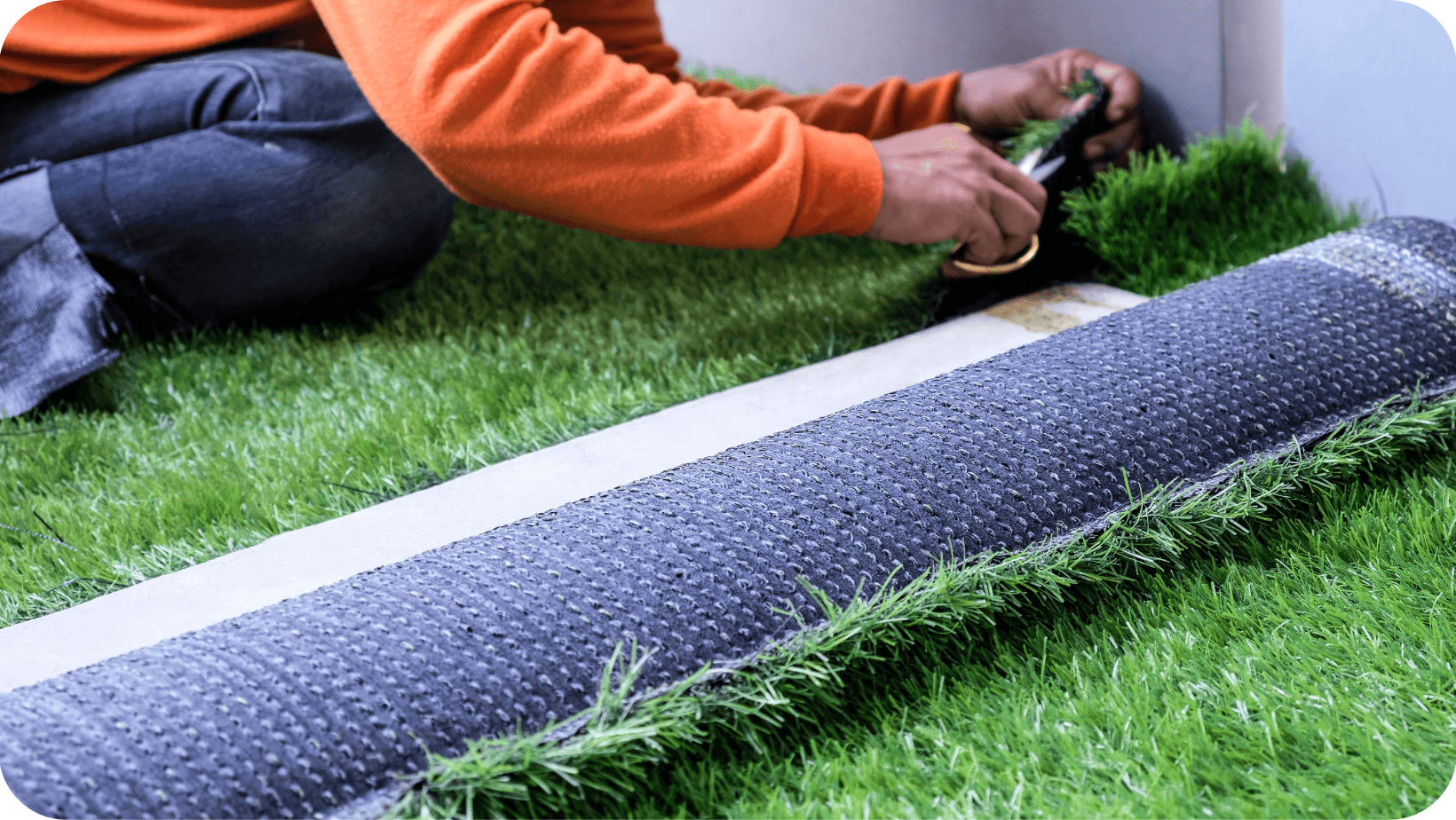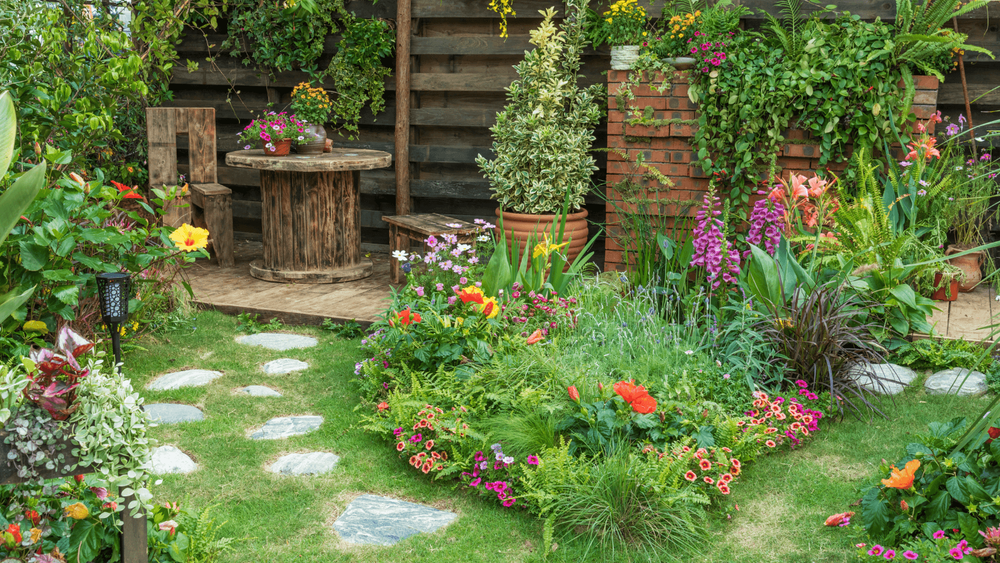Is it time to ditch artificial lawns and let gardens rewild?
Spring is debatably the most beautiful time of year in the UK. Across the nation, birds are tweeting, bees are buzzing, and an array of British wildflowers are beginning to bloom. Yet sadly, there is a rising trend spreading an eerie silence throughout the UK, one that not only restricts and harms wildlife but significantly contributes towards the climate crisis; the demand for artificial lawns.
21st-century living has presented humanity with a multitude of cheap, quick-fix options to suit modern-day life, from fast food to fast fashion. And now, anyone looking for a minimalist garden can add a ‘fast garden’ to the check-out, with a plastic carpet ready to be rolled out and installed from as little as twenty pounds per square metre. But, just as fast fashion and fast food may be cheap to purchase, fast grass comes with a multitude of more alarming costs attached.
The most pressing issue is that artificial grass is made from polyethylene, a thermoplastic product. As warmer weather approaches, microplastic particles break down, polluting the soil and having devastating effects on any life that it comes into contact with. And it’s not just insect and plant life that is at risk. Artificial grass reaches significantly higher temperatures whilst absorbing radiation.
Unlike gardens with natural carbon-absorbing grass, artificial lawns overheat in hot weather, making them a health and safety hazard, especially for families with young children and animals. Even more concerning is the list of carcinogenic materials in some plastic grasses used for industrial use. A recent report found the deaths of six Phillies ball players potentially linked to astro turf.
Along with being detrimental to the environment, hazardous to our health, and dangerous for children and animals, an additional issue worth noting is that artificial turf can reduce the value of property by up to 5%. And that’s before taking into account the added costs of maintaining an artificial lawn, many of which can be found in nature writer Jack Wallington’s 17 reasons to avoid fake lawns.
Garden designer Charlotte Howard has seen first-hand how the demand for fake grass has grown and recently launched the #TimeForTurf campaign, seeking to debunk the myth that an artificial lawn, is a low-maintenance one.
"I specialise in designing gardens for inexperienced gardeners with busy lives, dogs and kids, and I understand how tempting it can be to believe the hype about plastic grass. Most of my clients live in new-build homes with small gardens, poor drainage and dreadful soil and think the only solution is to go plastic, but by covering your space in plastic, you are just replacing one problem with another.
The solution lies in improving the overall soil quality. This can be done with topsoil and compost, and by planting trees, shrubs and plants. These will loosen the soil and absorb the water. If there was as much money invested into educating people on how to improve soil, as there is into promoting petrochemicals, then toxic grass would no longer be trendy. I want people to understand the dangers fake grass comes with and hope that it becomes a thing of the past like asbestos."

FeelPic/Getty Images
The overwhelming mass of life-harming plastic aside, preparation prior to laying artificial turf is greatly detrimental to nature, as natural grass, soil, and plant life are eradicated to make way for plastic grass. The UK has recently been declared one of the most nature-depleted countries in the world, with a quarter of mammals at risk of extinction and the biodiversity crisis at an all-time high.
Recent land use statistics show that the leading cause of our country's rapid decline in nature lies in agriculture, with a whopping 63.1% of land used for agricultural use. The increase in pesticides has also been of great detriment to pollinators, insect life, and nature as a whole, with the People’s Plan For Nature calling for an urgent restructuring of how we grow and sustain food and the urgency to begin rewilding the UK.
As a nation, the UK has lost 97% of wildflower meadows, leaving a mere 3% for pollinators. Insect life is in major decline, with the lack of natural grasslands and meadows also greatly affecting small mammals. Hedgehogs are facing a population loss of 50%, with many creatures we hold dear now suffering from severe habitat loss.
However, even with such dramatic wildlife devastation across the UK, there is hope, as a vast 4.9% of land is in the hands of the general public; in gardens and outdoor spaces. We have an unprecedented opportunity to provide much needed safe havens for wildlife complete with nutrients and shelter. And, by allowing grass to grow freely, resisting the urge to ‘weed’ and allowing wildflowers to bloom, we can provide urgently needed sustenance for wildlife across the country. And it’s not just flora and fauna that will benefit, humans can reap the rewards too.
Grass boasts a multitude of pros, from filtering air, trapping and absorbing smoke, dust, and pollutants, to absorbing sound and reducing noise pollution. From a mental health perspective, natural spaces are proven to reduce stress and improve our general wellbeing too. In fact, grounding for just fifteen minutes a day (standing barefoot on natural ground) may help improve symptoms of fatigue, chronic pain, anxiety and depression, sleep disorders and hypertension.
With so many pros in grass’s favour, and the never-ending list of cons going against artificial lawns, the option to rewild our gardens is an exciting opportunity that everyone can benefit from. Embrace a little of Mother Nature’s wildness this spring and allow grass to grow. Better yet, go that step further and consider taking part in Plant Life’s no mow May, to truly give wildlife a much-needed boost this spring. Join V-Land in welcoming wildlife back into our green spaces with open arms this year and every year to come.
As Sir David Attenborough so eloquently stated, “To restore stability to our planet we must restore biodiversity. The very thing we've removed. It's the only way out of this crisis we've created. We must rewild the world.”
Now we’ve addressed the problems with artificial lawns, the next pressing issue is the state of our soil. To find out more on this important topic read: save the earth: the biodiversity crisis nobody is talking about.
